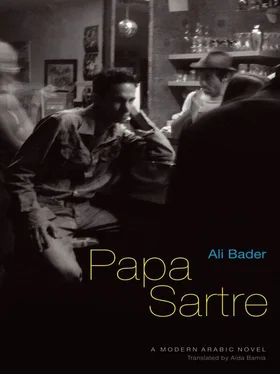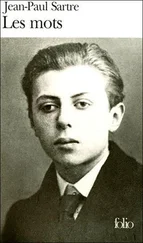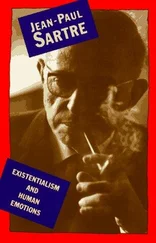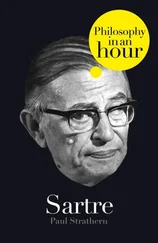They were both silent as they soaked in pleasure, taking in the streets lined with high-rise buildings and admiring the sidewalks canopied with eucalyptus trees. Behind the two men, the minarets and silent green domes of the mosques reached into the air. The streets were lit with kerosene lamps that guided pedestrians on foggy nights. They took in the scene unfolding on the sidewalks crowded with water pipes and waiters serving cups of tea to elegant customers in western dress. They had to walk close to the moss that grew in the mud breaking through the cracks of the asphalt sidewalks. Unveiled women crowded the cafés and groceries in the markets. Some sat on their doorsteps. It was a common scene at that time: the Royal and Roxy cinemas, the Mackenzie and Coronet bookstores, the Swiss café, Orosdi Back department store, Sartre, and Trotsky. Throughout that decade Abd al-Rahman was like a crocodile with tears constantly in his eyes. As he walked, his eyes would wander left and right, fixing on women with big breasts revealed by low-cut dresses. He stared at their soft bodies and golden legs, the denim skirts, the shiny umbrellas.
2
The philosopher of al-Sadriya was not short on despondent friends, but he needed a public post and had to write articles to introduce himself to society. He was handsome and appealed to women, and men were impressed by his elegance. He had money to spend on prostitutes. He was smart, funny, and, indeed, quite popular among the literary café-goers. At that time, it pleased society men to encounter a young Baghdadi who was capable of engaging the greatest western philosophers and thinkers, including Sartre. They took special pleasure in seeing him sitting alone in a corner, meditating on existence and its nihilistic nature. They enjoyed listening to his strange language, difficult and complicated, about existence by and for itself. For his part, he enjoyed his quick fame and prominence. He was proud of his social class, but he was a modest philosopher who had acquired some French manners: simple elegance, well chosen words, and mannerisms that were usually lost when he drank. He was hoping for a prominent position, real power, and resounding fame, but his awareness of his shortcomings had convinced him that a philosopher does not work, he philosophizes.
In 1957, on a visit to Baghdad while still a student in Paris, his father introduced him to Prime Minister Nouri al-Said, hoping to secure a position for him upon his return to the country, to serve as a philosopher in the cabinet of ministers. The brilliant politician took great interest in him and gave him a piece of advice he never forgot, “You are a philosopher, and you must continue to do your philosophy. Work would interfere with your activities as a philosopher. An office job is not for you, and you can do without it. Work is for creatures like us who are not capable of such noble and great thinking.”
Abd al-Rahman was relieved to hear these words. His father had placed him in a rather delicate situation, from which the prime minister had in fact freed him. His father, however, did not share his relief but, rather, was depressed, angry, and resentful; he was convinced that the prime minister felt threatened by his son’s genius. The prime minister, on the other hand, remarked in his memoirs of the year 1957 (a modest notebook that was in the possession of Mrs. Amna al-Said), that, “The honorable Shawkat Amin often burdens me with suggestions that, if I were to apply them, would turn the political situation upside down and destroy us. Today he brought me his son, the one we got rid of by sending him off to study philosophy in Paris. He suggested that we appoint him as the cabinet’s philosopher after his return from Paris. I explained to him delicately that appointing a philosopher to the cabinet would not bolster its survival. What’s more alarming is the fact that his son returned from Paris worse off than he was before he went. As soon as I heard the young man speak I became convinced that, without a doubt, he was crazy. If he is not crazy then I am crazy. By God, I wonder how these riffraff became aristocrats!”
The prime minister’s remark was certainly biased, out of place, and unfair, as he did not know that Abd al-Rahman, notable philosopher that he was, actually shied away from relations with influential people and prominent families. He even despised their way of life. He sought to promote a society that protected his imagination from pedestrian thinking. The aristocracy did not fit this requirement by any measure. Had he told the prime minister that he felt nauseated, surely he would have been met with ridicule and bitter sarcasm. Although he desired aristocratic women, he also loved to humiliate them. Had he married one, she would have been honored, but he chose to marry a western woman who surpassed them in manners and philosophy. He wanted to humiliate and ignore them and showcase his superior philosophical thinking. The women who surrounded his mother considered this cheating.
Despite feeling nausea, a nihilistic sentiment regarding existence and the futility of life, Abd al-Rahman was not devoid of love for the high life: dancing in nightclubs, drinking cognac, and joking with the waiters, the dancers, and the drunks. Dalal Masabni took pride in being among his intellectual group and complained to everyone about his nausea and her own. But she also enjoyed life, sought pleasure, and wore heavy makeup. She brimmed with desire and excitement, strove to make a living, and enjoyed alcohol, drugs, and music. Abd al-Rahman gravitated toward that life along with Ismail, whom he used to push into a taxi in front of King Ghazi Park saying, “Let’s spend two to three hours nauseated.”
Grief Adab was decorated with photographs of half-naked dancers and licentious ads that promised a memorable time with the dancers, whether it be “Tear of the Eyes,” “Sugar of the Heart,” or “Virgin of Existentialism!” This last name was suggested, naturally, by Abd al-Rahman. He even suggested that the hallway that led to the dance hall be decorated with a large portrait of Jean-Paul Sartre opposite a red lantern. Dalal Masabni agreed without discussion. Abd al-Rahman brought a large photograph of the French philosopher in a thin golden frame. The dancers, led by Dalal, received him with cheers. Abd al-Rahman climbed up on a small stool to hang the photograph, while Ismail helped him straighten it. When Dalal asked about the identity of the man in the photograph, Abd al-Rahman smiled sadly and bent his head. As he moved his finger to point, it fell exactly on Sartre’s cross-eye. He told her, “My dear Dalal, this is the man who taught us all to feel nauseated.” She shook her head, “Oh, then this is the original nauseated person.”
Such was the extent of Dalal’s understanding of the matter, and among all the dancers whose mouths dropped as they considered that mysterious, beautiful photograph, only Ismail was aware of the importance of the moment. Dancing and cheering, they celebrated Sartre’s arrival, then walked through the long hallway between rows of photographs of half-naked dancers, surrounded by frenzied customers, with drinks in hand.
Abd al-Rahman and Ismail’s regular table was at the far end of the room. The table had a sacred history dating back to the first day Abd al-Rahman entered the club, and it became known as the philosopher’s table. That day a fat, big-breasted, and fair-skinned redhead was singing in a plaintive voice as the crowd enthusiastically cheered her on. As the customers exchanged their greetings, she seized the opportunity to welcome the arrival of the al-Sadriya philosopher, Abd al-Rahman Sartre, which she pronounced “Santer.” With his very first drink Abd al-Rahman turned into a powerful and authentic philosopher; Ismail, on the other hand, had a higher tolerance, as he had started drinking in his youth. Ismail was infatuated with a young Assyrian dancer nicknamed Wazzeh (Duck). She looked like a white duck, and everything on her body moved when she walked: her breasts, hips, and restless feet. She constantly chewed gum. She had memorized a dictionary of depraved words, and every now and then she would point to her half-naked breasts — which Ismail described as “an existentialist bosom”—and tell everyone that it was there that nausea reposed. This always provoked a huge uproar in the hall.
Читать дальше












